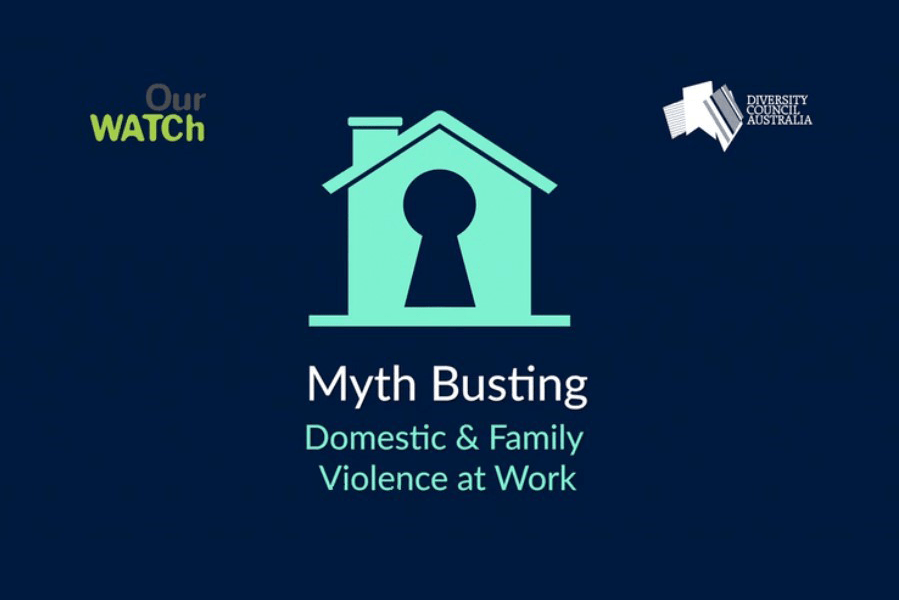Domestic violence is a critical issue for the workplace, especially as COVID-19 continues to blur the line between home and office, whilst also driving a documented spike in violence against women.
But what are workplaces doing to address the issue? And is it really an issue for workplaces at all?
The questions come on the back of a new myth-buster from Diversity Council Australia (DCA) and Our Watch.
The resource – released in the lead up to International Women’s Day – challenges the myth that domestic, family and intimate partner violence is not a workplace issue, despite Australian business losing a staggering $1.9 billion a year due to this ‘shadow pandemic’.
Without a change of perspective, Australia’s economy may lag – when COVID-19 dictates it can least afford to – and many more women will be seriously harmed. Some will ultimately lose their lives.
Diversity Council Australia’s CEO Lisa Annese said: “It’s a myth that domestic and family violence doesn’t have anything to do with the workplace. In reality, domestic and family violence is the workplace issue of our challenging times. If an employee is living with, or using, domestic or family violence, it will have an impact on the workplace through absenteeism, presenteeism and the costs of replacement hiring.
“While workplaces may have concerns about implementing policies like paid leave for domestic violence, research shows that they have a hugely positive impact for employees and business alike, for a relatively small cost.
“But we must remember the most important statistics of all: almost 10 women a day are hospitalised for assault injuries perpetrated by a spouse or domestic partner, and, on average, one woman a week is murdered by her current or former partner. Supporting women who experience this kind of violence is the right – the only – thing for workplaces to do.”
Our Watch CEO Patty Kinnersly, whose organisation collaborated on the myth-buster, said: “There has been a huge shift in the community conversation about this issue in recent times. Violence against women is recognised as the serious and highly prevalent crime that it is, and most people understand that addressing this crisis is the entire community’s responsibility.
“We know from the evidence that violence against women is driven by gender inequality, which is deeply entrenched in society through our policies, laws, systems, workplaces, attitudes and behaviours. It’s evident in language and practices that still too often ‘blame the victim’ or minimise or excuse men’s violence.
“Given workplaces are where we spend so much of our time and have such a huge influence over our lives, it’s critical they take an active role in promoting gender equality and addressing the drivers of violence against women.
“As we’ve so often heard during this pandemic: women’s lives and livelihoods are at stake.”
Continue reading on the DCA website: Myth Busting Domestic & Family Violence at Work
This article was originally published by Diversity Council Australia and Our Watch.
Diversity Council Australia (DCA) is the independent not-for-profit peak body leading diversity and inclusion in the workplace. DCA provides unique research, inspiring events and programs, curated resources and expert advice across all diversity dimensions to a community of member organisations.

